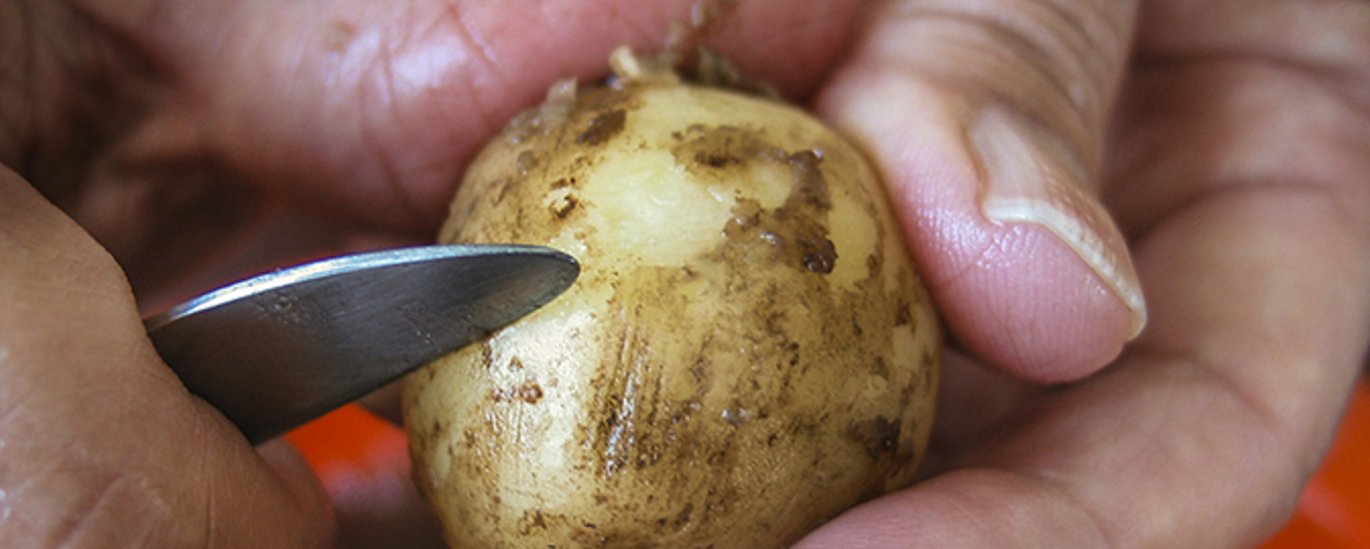How do food and meals affect the quality of life among the elderly?
A new study shows that elderly people’s satisfaction with meals in their own home correlates closely with their degree of self-sufficiency.

The more self-sufficient the elderly are, the more satisfied they are with their meals. This has been established by researchers from Aarhus University as part of the work described in the Danish report 'Meninger om mad og måltider blandt ældre i eget hjem' (Opinions on food and meals among elderly people living at home).
Alice Grønhøj, associate professor at the MAPP Centre, the Department of Management, Aarhus University has helped conduct the study. She explains:
- There’s no doubt that food and meals are an important part of life. We eat every single day, and if we’re not happy with what we eat, or the way the meal takes place, it is likely to affect our overall satisfaction with life.
The study was conducted with approx. 1000 respondents in six different municipalities across Denmark and shows a clear correlation between self-sufficiency and satisfaction.
- It’s clear that the level of satisfaction decreases the less self-sufficient the elderly are. In general, the study shows that the elderly are very satisfied with the food that they have prepared themselves or that has been prepared in the home, e.g. by a spouse. Satisfaction remains high, but is nonetheless somewhat lower, when it comes to food delivered by municipal meal services. We are currently examining what lies behind this correlation, because we cannot say precisely. But it’s important to understand this correlation so that you know which initiatives are required to increase the food-related quality of life for this age group, says Alice Grønhøj.
More cooks may help
The elderly are most satisfied with the food prepared by themselves or their family/spouse. This indicates that it would make sense to mobilise the elderly rather than immediately resorting to ready-made meals when the elderly can no longer cope with the pots and pans themselves.
So even though an elderly person might not be able prepare an entire meal, he or she might have to peel the potatoes or contribute to the cooking in some other way.
It might also be interesting to examine what happens during transitional periods - e.g. when you go from being self-sufficient to needing help - but are still able to do some things by yourself - or when you lose a spouse, which will invariably happen to a number of people in this age group.
The individualists are coming
One of the aims of the study is to find out what the food suppliers and municipalities should offer the elderly who are approved for meal services to increase their level of satisfaction. Here there is a considerable difference in the demands for texture, taste, choice, etc. The elderly are obviously not a homogeneous group. Whereas organic goods are high on the wish list in some parts of the country, they are not on the agenda at all in others.
As such, the report may provide an indication of what to focus on to accommodate the wishes of the elderly, not just presently, but also in the future.
- There’s no question that we’re becoming more and more individualised in our wishes and needs, and that trend isn’t going to decrease. As a group, elderly people are also becoming more ethnically diverse, just as elderly people with a Danish background will be increasingly inspired by food from many places, says Alice Grønhøj.
All of this will require a more varied approach when planning the menu for tomorrow’s elderly people. for Virksomhedsledelse, AU.
Further information
The Danish study “Meninger om mad og måltider blandt ældre i eget hjem – en kvantitativ undersøgelse af ældres måltider, sociale rammer, funktionsevne og livskvalitet” (Opinions on food and meals among elderly people living at home - a quantitative analysis of elderly people’s meals, social framework, level of function and quality of life) has been conducted by researchers at the section Food Quality, Perception and Society, Department of Food Science, AU as well as by researchers at the MAPP Centre, Department of Management, AU.
Contact
Associate Professor Alice Grønhøj
Department of Management
The MAPP Centre, AU
Email: alg@mgmt.au.dk
Telephone: +45 8716 5042
Mobile: +45 6177 9697
